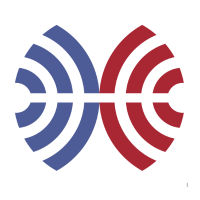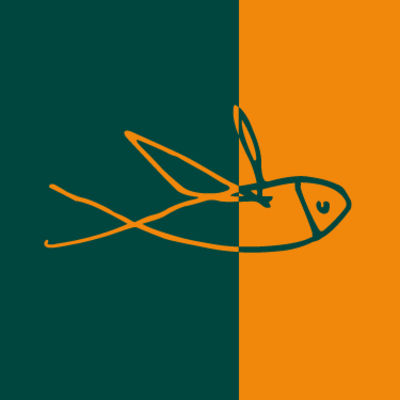预约演示
更新于:2026-02-27
Uzatresgene autoleucel
更新于:2026-02-27
概要
基本信息
原研机构 |
在研机构 |
非在研机构 |
最高研发阶段临床2期 |
首次获批日期- |
最高研发阶段(中国)- |
特殊审评- |
登录后查看时间轴
结构/序列
Sequence Code 1277314210

关联
3
项与 Uzatresgene autoleucel 相关的临床试验NCT05601752
A Phase 2, Open-Label, Randomized, Non-Comparative Clinical Trial of ADP-A2M4CD8 Monotherapy and in Combination With Nivolumab in Subjects With Recurrent Ovarian Cancers
This is a phase 2, open-label, randomized, non-comparative clinical trial to evaluate the clinical outcome of ADP A2M4CD8 as monotherapy and in combination treatment with nivolumab in human leukocyte antigen (HLA) A2+ subjects with recurrent ovarian cancer positive for MAGE-A4.
开始日期2023-06-26 |
NCT04752358
A Phase 2 Open-Label Clinical Trial of ADP-A2M4CD8 in Subjects With Advanced Esophageal or Esophagogastric Junction Cancers
This study will investigate the efficacy of ADP-A2M4CD8 T-cell therapy in subjects who have the appropriate human leukocyte antigen (HLA) and tumor antigen status and whose esophageal or esophagogastric junction (EGJ) cancer expresses the MAGE-A4 protein.
开始日期2021-09-15 |
申办/合作机构  Adaptimmune Ltd. Adaptimmune Ltd. [+1] |
NCT04044859
A Phase 1 Dose Escalation Study To Assess Safety And Efficacy Of ADP-A2M4CD8 As Monotherapy Or In Combination With Either Nivolumab Or Pembrolizumab In HLA-A2+ Subjects With MAGE-A4 Positive Tumors (SURPASS)
This study will investigate the safety and tolerability of ADP-A2M4CD8 T-cell therapy in subjects who have the appropriate human leukocyte antigen (HLA) and MAGE-A4 tumor antigen. Tumor indications include endometrial, esophageal, esophagogastric junction (EGJ), gastric, head and neck, melanoma, non-small cell lung (NSCLC), ovarian or urothelial cancer.
开始日期2019-08-20 |
申办/合作机构- |
100 项与 Uzatresgene autoleucel 相关的临床结果
登录后查看更多信息
100 项与 Uzatresgene autoleucel 相关的转化医学
登录后查看更多信息
100 项与 Uzatresgene autoleucel 相关的专利(医药)
登录后查看更多信息
57
项与 Uzatresgene autoleucel 相关的新闻(医药)2026-01-16
精准免疫治疗利用人体免疫系统选择性清除异常细胞,同时保护健康细胞。靶向来源于癌症、自身免疫病及感染性疾病的特异性pHLA复合物,可实现精准干预,因为这些抗原在正常组织中表达水平极低。然而,设计兼具高特异性和低交叉反应性的结合分子仍具挑战性。受天然TCR识别pHLA复合物机制的启发,一系列合成策略应运而生,包括TCR模拟抗体(TCRm)和从头设计的pHLA结合分子;这些分子可灵活改造为T细胞衔接器(TCE)或用于过继性细胞治疗,展现出优异的特异性和疗效。此外,AI驱动的方法、免疫肽组学及计算蛋白质设计等领域的进展,正加速高特异性pHLA治疗药物的发现及其跨等位基因普适性开发。这里,浙江大学药学院百人计划研究员潘利强团队,综述了当前pHLA靶向免疫治疗的研究策略、作用机制、临床前与临床数据,以及推动该领域发展的前沿技术。
1
靶向pHLA复合物用于精准免疫治疗的研究进展
pHLA复合物是关键的细胞表面结构,可呈递细胞内加工后的多肽,使免疫系统能够区分感染细胞或恶性转化细胞等病变细胞与健康组织。这一独特功能使pHLA成为肿瘤学、自身免疫病及感染性疾病中精准免疫治疗极具吸引力的靶点,尤其在需要极高特异性的场景下。迄今,已有三类主要的分子干预形式被开发用于靶向pHLA复合物:TCR、TCRm以及从头设计蛋白。这三类干预形式在结构构型、亲和力范围及结合取向上存在根本差异,而这些差异共同决定了它们的特异性与治疗潜力(图1A)。
基于这些pHLA结合分子所构建的生物治疗药物,涵盖TCR、TCRm以及从头设计蛋白,主要通过两类机制发挥作用:TCE和T细胞疗法。TCE是一类双特异性融合蛋白,可将靶细胞表面的pHLA复合物与T细胞表面的CD3分子连接起来,从而引导机体已有的T细胞杀伤肿瘤。相比之下,T细胞疗法则是通过基因改造患者自体T细胞,使其表达经工程化改造的TCR(即TCR-T疗法)或CAR,而这类CAR可由TCRm或全新设计的蛋白构建而成(即CAR-T疗法),从而实现对靶细胞的高度特异性识别与清除。目前,多个基于上述原理开发的治疗药物已在临床前及早期临床研究中展现出前所未有的疗效。
然而,靶向pHLA复合物面临多重挑战,这些挑战会影响最终药物的活性和毒性。具体包括:由于肽段呈递有限导致靶标丰度低;HLA等位基因限制性使适用患者范围变窄;高亲和力与脱靶风险之间难以平衡;以及理化性质或药代动力学特性欠佳。上述因素均可能制约临床疗效,并引发不良事件,例如on-target off-tumor毒性或细胞因子释放综合征(CRS)(图i)。
① 靶标丰度仍是所有三类pHLA靶向疗法的根本性限制因素(图iA)。许多pHLA靶标(尤其是共享新抗原)在单个细胞中的拷贝数极低。对于某些特定pHLA表位(例如源自常见p53 R175H突变的表位),每细胞仅含约1.5–2.4个拷贝。此外,靶肽段仅占pHLA复合物溶剂可及表面积的不足1%。这些因素使得治疗分子对靶标的特异性结合本身即极为困难,并直接削弱疗效。同时,靶标密度偏低也严重阻碍靶标发现:当前检测技术灵敏度不足,难以可靠识别大量具有临床意义的pHLA靶标;而预测多肽呈递及丰度的计算模型仍不完善。
② HLA限制性构成TCR类疗法临床转化的主要障碍(图iB)。HLA系统具有高度遗传多态性,产生数千种等位基因变异体,其在全球不同人群中的分布频率差异显著。由于TCR以HLA等位基因特异性方式识别pHLA复合物,其活性仅限于特定HLA亚型,从而大幅限制适用患者群体,削弱TCR类疗法的广泛临床适用性。
③ 亲和力与特异性的平衡是三类疗法共有的普遍挑战(图iC)。尽管亲和力成熟可增强结合能力,但过高的亲和力常导致交叉反应及脱靶毒性。这凸显出:针对pHLA的结合分子需在三类疗法中均寻得一个恰到好处的亲和力区间——既要足够强以保障疗效,又须足够精准以确保安全性。
④ 药代动力学特性及生物物理性质构成额外障碍,尤其对可溶性TCR融合蛋白与双特异性抗体而言(图iD)。天然TCR依赖复杂且异质的糖基化修饰实现正确折叠与结构稳定,而工程化改造后的变体往往缺失此类修饰。因此,可溶性TCR普遍存在溶解度降低、构象不稳定及体内半衰期缩短等问题,最终导致治疗效果欠佳。
图i 靶向pHLA治疗药物研发中的四大关键障碍
为克服这些障碍,研究人员正采用先进的工程与计算策略。例如,提高TCR及TCRm的特异性,有助于应对抗原密度低的问题;而通过以肽段为中心的结合模式拓宽HLA识别谱,则可扩大适用患者人群。AI驱动的工具与分子动力学(MD)模拟现已实现高精度的亲和力成熟与特异性筛选;同时,蛋白质稳定性与半衰期的提升,正助力突破早期在生物利用度与药效动力学方面的局限。
这里系统梳理了当前靶向pHLA的各类技术手段(包括TCR、TCRm及从头设计蛋白),深入分析了基于这些结合分子开发的TCE、TCR-T及CAR-T疗法的作用机制、临床前疗效与临床进展。此外,还探讨了AI驱动的技术如何推动新一代pHLA靶向治疗药物的发展,为提升安全性与临床获益开辟全新路径。
2
TCR、TCRm以及从头设计的蛋白质
可溶性TCR作为靶向pHLA的治疗策略
可溶性TCR源自天然αβ型TCR,通常被改造为复性异源二聚体、Fc融合蛋白或单链TCR可变区片段(scTv,类比抗体中使用的单链可变区片段scFv术语)(图1A,左)。这类分子通过TCR α链和β链上的6个CDR识别pHLA:CDR1和CDR2通常结合HLA的α1/α2螺旋,而CDR3则直接接触抗原肽(图1B、C)。由此形成经典的对角结合取向,即大多数天然TCR以30–50°夹角跨p–HLA沟槽结合。
天然TCR的亲和力相对较低(1–100μM)。通过噬菌体展示或酵母展示等方法进行亲和力成熟,可将TCR的结合能力提升至nM水平,从而增强其对低密度肿瘤相关抗原及新抗原(如肿瘤相关抗原NY-ESO-1 ₁₅₇₋₁₆₅或新抗原p53 R175H)的识别能力。然而,亲和力过度增强可能增加交叉反应性,因为额外的结合能往往源于TCR与HLA支架的相互作用,而HLA在体内广泛表达。除亲和力外,TCR–pHLA相互作用的生物物理特性(例如捕获键与滑移键)也影响其功能效果。捕获键是一种分子相互作用:在发生有效抗原识别时,TCR与pHLA复合物之间的结合反而增强、持续时间延长,从而促进TCR活化与信号转导;而滑移键则表现为结合寿命较短,无法增强TCR活化,通常见于无刺激性或弱结合的pHLA配体,不参与有效的TCR信号传导。已有研究表明,通过工程化手段引入捕获键特性,可在维持特异性的同时增强细胞毒活性。
●图1 可溶性TCRs、TCRm以及从头设计的蛋白结合剂的结构特征与结合特性。
TCRm疗法作为靶向pHLA的治疗策略
TCRm抗体是经工程化改造的抗体,可模拟TCR的功能,特异性识别pHLA复合物。这类抗体兼具常规抗体的稳定性、易于规模化生产和形式灵活等优势,以及TCR对pHLA靶标的高特异性。它们可表达为全长IgG、Fab片段、scFv或单域抗体(如VHH),其抗原结合部位采用常规抗体的CDR构型:IgG/Fab/scFv通常含6个CDR,而VHH则含3个CDR,这些CDR直接介导与pHLA的结合。不同抗体形式有助于在体内优化其特异性和稳定性:例如,全长IgG常用于实现长效循环和稳定存在;而scFv和VHH则经过工程化改造以增强组织穿透能力并降低免疫原性,从而整体提升抗体构建体的治疗效果。TCRm的亲和力通常达到nM水平,这源于其源自合成或免疫来源的抗体文库,并经体外筛选与优化。
TCRm的一个显著特征在于其结合模式。与天然TCR始终以对角方式结合pHLA并广泛接触呈递肽段不同,TCRm采用多样的对接构型(图1C)。抗体的特异性与其和肽段相互作用的表面积及结合位点密切相关;若抗体以肽段为中心进行结合,或其与抗原性肽段及HLA的接触比例接近天然TCR,则更有可能有效保障特异性。X射线晶体学与cryo-EM结构研究揭示了这些抗体如何模拟天然TCR的功能,实现对pHLA的结合。部分TCRm主要与HLA表面相互作用,仅与肽段形成有限接触,从而增加了发生交叉反应的风险。例如,靶向HLA-A*02:01呈递的WT1来源肽段RMFPNAPYL的IgG型TCRm ESK-1,主要依赖该肽段的N端残基,导致其意外识别无关的自身肽段。尽管部分TCRm以接近天然TCR的角度识别靶标,但多数TCRm采取独特的结合模式。TCRm 3M4E5识别HLA-A*02:01呈递的肿瘤相关抗原NY-ESO-1 157-165肽段时,以非传统角度结合肽段,同时大幅避开与HLA α螺旋的接触,展现出一种非常规的结合模式(图1C,中);而靶向HLA-A*02:01呈递的TP53 R175H突变肽段的TCRm H2,虽采用偏离天然TCR典型对角结合方式的对接取向,却仍保持严格的肽段选择性。综上可见,TCRm可采用多种结合模式,从侧重HLA的相互作用到高度聚焦于肽段的识别不等,每种模式对特异性及潜在交叉反应性均具有不同的影响。
从头设计的蛋白质作为靶向pHLA的治疗策略
计算蛋白质设计领域的最新进展,已实现了可特异性识别pHLA复合物的合成蛋白质的构建。这类从头设计的蛋白质通常结构紧凑、刚性较强,多呈α-螺旋拓扑构型,而非类似免疫球蛋白的折叠方式;其经过工程化改造,形成了明确定义的结合表面,可在极少接触保守HLA骨架的前提下,与肽段发生相互作用。与传统抗体或TCR不同,这些蛋白质不依赖经典的CDR环,而是借助人工设计的结构模体,构建出高度特异性的肽段识别界面(图1B、C,右)。
这类分子通常可达到nM级亲和力,与经过优化的TCRm相当,体现了计算设计与实验筛选相结合所实现的高精度。例如,在识别抗原肽–HLA复合物的HLA I类报告系统(TRACeR平台)中,研究证实基于深度学习的方法(如RFdiffusion和ProteinMPNN)可用于设计结构紧凑、构象刚性的蛋白质,使其以nM级亲和力特异性结合由多种HLA-I等位型呈递的疾病相关肽段,同时最大程度减少与广泛表达的HLA支架蛋白发生的非特异性相互作用。二聚体TRACeR蛋白通过两个单体的α螺旋表面共同形成一个疏水口袋,从而特异性识别NY-ESO-1/HLA-A02:01肽段。这种结构灵活性使其能够规避HLA多态性限制,从而识别由多种HLA等位基因(包括HLA-A、-B和-C)呈递的肽段,相较于天然TCR或TCRm,显著拓展了临床适用患者群体(图1B,右)。总体而言,这些发现凸显了计算设计的pHLA结合蛋白在科研与治疗领域中实现高亲和力、广谱适用性及高精准度靶向的巨大潜力。
3
T细胞衔接分子(TCE)
包含可溶性TCR和anti-CD3抗体的TCE
目前上市的可溶性TCR–CD3抗体融合蛋白以双特异性T细胞衔接剂(BiTE)形式存在,例如tebentafusp。BiTE由一条可溶性TCR单链与一条anti-CD3抗体单链连接而成,可同时结合肿瘤细胞和T细胞(图2A)。tebentafusp采用经工程化改造的TCR,其对肿瘤细胞表面gp100肽/HLA-A*02:01复合物具有皮pM级亲和力。该药于2022年获美国FDA批准,用于治疗转移性葡萄膜黑色素瘤,并展现出总体生存获益。一项为期3年的临床试验表明,接受tebentafusp治疗的患者较接受帕博利珠单抗、伊匹木单抗或达卡巴嗪等常规抗体治疗的患者,总体生存期更长;tebentafusp组中位总体生存期为21.6个月,对照组为16.9个月。TCE潜在风险包括CRS及其他免疫相关不良事件。然而,tebentafusp仅在早期治疗阶段引发轻度不良反应,如皮疹、发热及瘙痒;这些反应随持续治疗逐渐消退,且未发生任何与治疗相关的死亡事件。上述结果表明,tebentafusp具有良好的安全性特征。作为一类通过TCR结合靶向pHLA的可溶性TCE,tebentafusp为免疫治疗开发提供了极具前景的方向,推动了多种新型双特异性T细胞衔接剂的研发——这些新药特异性靶向源自肿瘤相关抗原(如PRAME、NY-ESO-1及MAGE-A4)的pHLA复合物,并已在临床试验中展现出显著潜力(表1)。
表1 靶向pHLA疗法的临床研发管线(2021–2024)
包含TCRm和anti-CD3抗体的TCE
基于TCRm的TCE的作用机制与基于TCR的TCE相似。此类衔接分子采用两类结构:一类为含Fc结构域、呈IgG样构型的分子,用于介导免疫效应;另一类则为将小型抗体片段融合而成的紧凑型非IgG样结构,包括BiTE、DART和双抗体等类型(图2B)。
TCRm双特异性T细胞衔接分子的生物学活性受其结构形式、分子大小、价态及空间构型的影响,这些因素共同决定了其靶标结合效率与T细胞激活能力。单链双抗体(scDbs)在靶标表达密度较低的情况下展现出更优的T细胞激活效果,这很可能归因于其紧凑的空间构型与理想的空间取向,从而促进免疫突触的高效形成(图2B)。
近期进展推动了TCRm T细胞衔接剂向临床应用迈进,其安全性与有效性已得到验证。在临床前研究中,研究人员开发出以scDb形式构建的TCRm/CD3双特异性抗体,可特异性识别突变型p53 R175H/HLA-A*02:01及KRAS G12V/HLA-A*03:01复合物。这些分子可在每细胞表面仅表达少于10个pHLA复合物的情况下,选择性激活T细胞杀伤肿瘤细胞,同时不损伤野生型细胞,证实其具有高度精准性与极低的脱靶毒性。首个TCRm双特异性抗体RO7283420采用三价CrossMAb结构设计,其中WT1–HLA-A*02结合域为二价,CD3结合域为单价;该分子在体外实验及人源化AML异种移植模型中均展现出强效且特异性的T细胞杀伤活性。RO7283420(NCT04580121)在复发或难治性AML患者中开展的Ⅰ期临床研究显示,其药效学数据支持其作用机制——即有效激活T细胞并诱导细胞因子释放,且整体安全性可控;然而客观临床缓解率较低,提示仍需进一步优化给药方案与靶点选择。
包含从头设计蛋白和anti-CD3抗体的TCE
与TCRm相比,从头设计的蛋白质能够以高亲和力、结构精确性识别特定的pHLA表位,同时具备更优的稳定性与工程可塑性。当与anti-CD3抗体片段融合形成TCE分子时,这些分子可特异性地诱导T细胞介导的肿瘤细胞杀伤作用。
近期研究表明,一种靶向NY-ESO-1/HLA-A2的TRACeR蛋白与anti-CD3抗体联用构建BiTE后,可高效裂解患者来源的DLBCL细胞,其EC50约为75nM,并伴随T细胞活化标志物CD69和4-1BB表达上调(图2C)。类似地,另一种从头设计的靶向NY-ESO-1的蛋白类TCE也展现出高度特异性,仅选择性杀伤NY-ESO-1/HLA-A2阳性细胞,而对仅表达HLA-A2或呈递无关肽段的细胞无杀伤作用。总体而言,这类以pHLA为靶点、从头设计的蛋白–CD3双特异性分子仍处于研发早期阶段,目前可获得的有效性数据主要来自基于细胞的临床前研究。尤为重要的是,完全从头设计的小分子蛋白在体内的免疫原性尚未得到充分表征,其安全性与耐受性尚需在动物模型及临床环境中进一步评估。尽管如此,这些分子在特异性、可设计性及潜在安全性方面的优良特性,凸显了其作为新一代T细胞重定向治疗药物的发展前景。
●图2 靶向pHLA的生物制剂示意图,包括TCE分子和T细胞疗法。
4
工程化TCR-T细胞疗法
近期,基于靶向pHLA复合物的工程化TCR-T细胞已成为另一项重要治疗策略。TCR工程化T细胞是一种创新性免疫疗法,将TCR的特异性识别能力与过继性细胞治疗相结合。CAR-T疗法则通过基因改造使T细胞表达CAR,该受体包含负责特异性抗原识别及T细胞活化信号传导的结构域,从而实现对肿瘤细胞的靶向识别与杀伤。与依赖scFv型CAR高亲和力结合表面抗原的CAR-T不同,TCR-T通过动态免疫突触形成及连续性pHLA结合,识别胞内肿瘤抗原,因而可在抗原低密度表达情况下实现高效检测(图2D)。在实体瘤治疗中,TCR-T展现出更优表现,在抗肿瘤活性、瘤内持续存留及功能稳定性方面均优于CAR-T细胞。杂合型TCR-T构建体以pHLA特异性的单链片段替换TCR可变区,可激活完整的TCR信号通路,从而诱导更强效的T细胞活化。临床研究显示,TCR-T在多种实体瘤中均展现出令人鼓舞的疗效:在HPV相关肿瘤及滑膜肉瘤中,ORR超过50%,且伴有体内长期存留、肿瘤浸润持续存在,以及应答者中观察到表位扩散现象。未来,结合动态信号调控与结构优化的TCR工程化策略,有望进一步拓展TCR-T的应用范围,尤其为抗原低表达等治疗难度较大的实体瘤提供新可能。
TCR工程领域的最新进展通过提升亲和力与安全性,进一步优化了TCR-T疗法。在一项针对NY-ESO-1特异性TCR-T(TAEST16001)的I期临床试验中,研究人员从健康供者体内筛选出经噬菌体展示技术获得的TCR,这些TCR保持了原有的抗原特异性,并实现了持久缓解,且未发生严重不良事件(表1)。该研究凸显了噬菌体展示技术用于从健康供者中获取高亲和力TCR的潜力:不仅可维持特异性,还能显著降低交叉反应风险,这对提升临床安全性至关重要。研究人员利用CRISPR-Cas9技术将外源性TCR精准插入TRAC位点,同步敲除内源性TCR,从而提高了TCR表达水平、功能亲和力以及对WT1阳性肿瘤的选择性杀伤能力,且未观察到脱靶毒性。该策略通过确保TCR的最佳表达并最大限度减少内源性TCR的干扰,显著增强了治疗的特异性和有效性。上述新型工程化手段突显了亲和力优化与基因组编辑在精细调控TCR-T功能中的关键价值。未来,将高通量筛选与人工智能驱动的表位建模相结合,有望加速开发兼具安全性、强效性及广泛适用性的TCR类免疫疗法。
5
CAR-T细胞疗法
基于TCRm的CAR-T细胞疗法
基于TCRm的CAR-T细胞是一种新兴的治疗策略,它通过识别以pHLA复合物形式呈递的胞内肿瘤靶标,将CAR-T细胞疗法的应用范围拓展至细胞表面抗原之外。这类构建体以源自TCRm的结合结构域取代传统CAR中的scFv,并通过CD28或4-1BB共刺激结构域触发经典的CAR信号通路,从而实现强效的T细胞活化及抗原特异性杀伤作用(图2E)。除scFv型CAR-T细胞外,研究人员还探索了以VHH为基础的CAR-T细胞,以克服传统Fab或scFv抗体所存在的局限性。
临床前研究显示,靶向MAGE-A4和NY-ESO-1表位的TCRm CAR-T细胞能有效识别pHLA,并诱导抗原特异性细胞毒性。在异种移植及原位肿瘤模型中,基于CD28的TCRm CAR-T构建体可迅速促使肿瘤消退,并显著释放IFN-γ,证实其体内活性强劲。然而,其疗效依赖于pHLA的丰度,因而需要高度敏感的信号传导能力及高效的免疫突触形成。对比研究表明,在应对低密度pHLA靶点时,含CD28的CAR较含4-1BB的CAR更具优势,凸显了共刺激结构域设计的重要性。
尽管临床前结果令人鼓舞,但仍存在诸多挑战,例如抗原密度有限、脱靶风险以及HLA限制性等问题。未来通过优化TCRm的亲和力、细胞内信号传导以及细胞因子增强策略(如IL-12和IL-18),有望提升其疗效与持久性,从而为针对实体瘤的安全、有效的TCRm CAR-T疗法铺平道路。
基于从头设计蛋白质的CAR-T细胞疗法
从头设计的蛋白CAR-T细胞疗法采用计算工程设计的蛋白质,将其作为CAR构建体中的抗原结合结构域,以识别pHLA复合物(图2F)。该策略使CAR-T细胞能够靶向经pHLA呈递至细胞表面的胞内肿瘤抗原。研究已证实这一策略可行:利用从头设计的微型TCR样分子变体1.1和1.2构建出具有功能的CAR-T细胞;这些细胞对天然表达NY-ESO-1并以HLA-A*02呈递NY-ESO-1₁₅₇₋₁₆₅肽的人黑色素瘤A375细胞系表现出明确的抗原特异性激活与杀伤效应。该结果证实,经设计的pHLA结合蛋白可作为CAR-T系统中高效可靠的识别模块。
目前,从头设计的CAR-T疗法仍处于早期研发阶段,在结合亲和力、特异性和安全性等方面尚需进一步优化。此外,还需全面评估其在体内的稳定性与免疫原性,并优化T细胞的表达与信号传导功能。在开展临床应用前,必须建立标准化的生产工艺,并进行充分的临床前验证。
6
新兴的AI驱动技术正在塑造下一代pHLA靶向疗法
下一代免疫肽组学与AI驱动的靶点发现
质谱(MS)免疫肽组学是目前唯一能够直接鉴定细胞表面呈递的免疫肽的方法。然而,传统质谱技术需要大量临床样本,例如10⁸个细胞或1g组织。此外,低丰度pHLA的分析常受限于信号强度微弱,易被背景噪声所掩盖。为克服这些局限,研究人员开发了超高灵敏度质谱技术。其中,FAIMS增强型质谱在传统液相色谱(LC)分离之后引入了一种高效率气相离子过滤器(图3A)。该过滤器即场非对称波形离子迁移谱(FAIMS),利用离子在非对称高频电场中迁移率的差异实现分离。它可有效滤除复杂的背景基质离子,显著提升信噪比。借助该技术,仅需约40mg结直肠癌组织即可鉴定携带致癌KRAS(G12V)突变的新抗原,极大拓展了免疫肽组学分析的深度。飞行时间(TOF)-离子迁移分离(IMS)-质谱则在液相色谱之后增加了一个IMS维度。IMS依据离子在惰性气体中迁移时的尺寸、形状与电荷差异进行分离,从而有效区分那些在液相色谱中保留时间极为相近甚至完全相同的肽段。该技术显著提高了可鉴定肽段的数量,并增强了对低丰度肽段的检出能力。利用这一技术,研究人员从94例良性样本中构建了一个包含逾15万个pHLA的大规模数据集,其中许多肽段此前尚未被报道。
这些技术的应用推动了高质量、大规模免疫肽组学数据集的快速积累,为AI驱动的pHLA预测方法提供了坚实的训练基础(图3A)。这显著降低了对大量临床样本和繁复湿实验验证的初始依赖。ImmuneApp利用深度学习分析源自临床样本的大规模免疫肽组学数据,从pHLA复合物中提取具有信息量的嵌入向量,并识别对p-HLA结合至关重要的残基,从而预测新抗原。通过对216个含多个等位基因的免疫肽组学样本开展系统性分析,ImmuneApp成功鉴定出由100余种HLA-I等位型呈递的超过83万条肽段。DeepNeo则依托公共数据库(如免疫表位数据库IEDB)中的大规模免疫肽组学数据进行训练;通过解析p-HLA相互作用模式并捕捉复杂的TCR识别特征,DeepNeo能够识别更可能激发强效抗肿瘤免疫应答的新抗原。因此,AI技术的整合显著减少了对大规模临床样本及耗时费力的湿实验验证的初始依赖,大幅提升了新抗原发现的效率。
多组学方法的整合是发现新抗原pHLA复合物的关键策略(图3A)。研究人员对涵盖25种肿瘤类型的32例患者样本,开展WES、WGS、RNA-seq以及基于质谱的免疫肽组学数据分析,成功鉴定出21种具有免疫原性、可激发T细胞应答的新抗原。然而,传统生物信息学分析流程在处理复杂、高通量的多组学数据集时,常受限于分析深度与可扩展性。AI技术的引入显著提升了从海量多组学数据中提取有效信息的能力。例如,机器学习模型MaNeo将分析规模拓展至涵盖531例临床样本的大型免疫肽组学图谱,覆盖14种癌症类型及29种健康组织。该模型通过学习肿瘤来源肽段与正常肽段之间的序列差异,实现对肿瘤特异性肽段特征的精准识别。此外,MaNeo还整合了TCGA和GTEx等数据库中的转录组数据,对候选肽段的来源基因进行注释,并有效剔除在正常组织中表达的肽段,从而大幅降低脱靶毒性风险。经MaNeo平台筛选的候选新抗原已在体外完成功能验证,证实其可诱导抗原特异性T细胞增殖并发挥抗肿瘤活性。综上所述,多组学数据与AI驱动的预测模型深度融合,为系统性发掘丰度极低的pHLA靶点这一长期难题提供了极具前景的解决方案。
●图3 正在兴起的AI驱动技术,正塑造下一代靶向pHLA的疗法。
跨HLA建模与工程平台
HLA分子的高度多态性导致pHLA复合物在结构和构象上存在显著差异,从而限制了现有治疗手段在人群中的适用范围。跨HLA建模与工程平台正应运而生,以应对这一局限。
结合晶体学、冷冻电镜与基于AI的建模等结构导向方法,可对不同HLA亚型中肽段的构象进行比较分析,从而指导跨等位基因结合剂的设计(图3B)。近期一项研究整合了群体尺度的抗原呈递预测工具(ShinyNAP)与结构建模方法(RosettaMHC),筛选出能呈递同一PHOX2B肽段的候选HLA等位基因;后续体外实验验证表明,所设计的pHLA结合剂可识别多种HLA亚型,展现出更广泛的跨HLA适用性。另一实例是TRACeR平台,该平台通过引导支架分子特异性结合肽段,同时接触HLA分子上保守区域,实现跨HLA的pHLA识别。在计算建模工具(如PatchDock、RifDock和Rosetta)指导下开展组合文库筛选,可在保持高肽段特异性的前提下,选出适配多种HLA等位基因的结合剂。
HLA介导的多肽呈递预测可识别出各类HLA分子向T细胞呈递的多肽。基于AI的pHLA呈递预测模型整合了大规模免疫多肽组学数据、MHC序列特征以及多肽加工信息,从而实现跨等位基因的靶点发现和跨人群的泛化应用(图3B)。HLAthena、HLAapollo和MHCnuggets等模型利用深度学习方法捕捉罕见或未经训练的HLA等位基因,提高了肿瘤抗原与疫苗靶点的预测准确性,进而支持面向全人群的免疫特征分析及个体化免疫治疗方案设计。
高通量展示文库与组合式pHLA芯片正日益被用于实验筛选和验证跨HLA结合分子(图3B)。T-FINDER是一种泛HLA平台,将抗原加工过程与TCR信号报告系统整合在一起,用以识别TCR与pHLA之间的功能性相互作用,为未来跨HLA结合分子的发现提供了一种可扩展的研究框架。
这些计算与实验创新协同并进,为新一代靶向pHLA的治疗药物奠定了基础,使其具备泛等位基因识别能力,并提升在人群中的可及性。
AI引导的亲和力优化与高通量特异性筛选
在pHLA靶向结合剂的设计中,亲和力与特异性之间的恰当平衡至关重要。亲和力过高可能通过稳定与HLA支架的相互作用而增加脱靶反应风险;而亲和力不足则会削弱治疗效力。近期基于AI及高通量的技术手段正在深刻改变这些参数的优化方式。
计算建模与分子动力学模拟正日益被用于定位p–HLA相互作用界面上的关键热点区域。整合基于深度学习的蛋白质设计工具(如RFdiffusion、ProteinMPNN和AlphaFold),可实现靶向残基替换,在增强肽段识别能力的同时避开保守的HLA接触位点。这类计算机模拟策略为进入实验验证前的亲和力迭代优化提供了系统性框架(图3C)。与此同时,GRATCR等专用模型则借助数据高效的预训练方法生成表位特异性的TCR序列,为TCR设计提供了一种互补策略。随着新型结合分子不断涌现,对其功能特性的精准表征变得尤为关键,以指导后续优化工作。
亲和力预测是关键步骤,可揭示pHLA与结合分子之间相互作用的强弱。基于结构和序列数据训练的机器学习模型能够以较为合理的准确度预测结合强度,但数据量有限、结果不一致等问题依然存在(图3C)。当前的研究工作致力于通过加强数据整理、整合生物物理参数以及开发更具可解释性的算法,来提升预测结果的稳健性。
在蛋白质组水平上确保特异性需要系统性验证。目前,酵母展示pHLA变体文库、T2细胞肽段突变扫描以及基于MS的相互作用组分析等高通量筛选平台,已成为检测交叉反应性的标准工具。互补的AI模型(如BATMAN和TEPCAM)整合了肽段呈递、序列及结构数据,可在计算机中预测潜在的脱靶相互作用,从而加快早期风险评估(图3C)。
上述计算与实验流程共同表明,针对pHLA的结合分子工程正逐步转向由AI引导、以数据为驱动的新范式。通过将亲和力预测与高通量特异性筛选相结合,研究人员能够更高效地设计出兼具强效性与高选择性的分子。未来进展的持续取得,取决于数据质量的提升、模型可解释性的增强,以及面向临床转化的特异性评估标准的统一与完善。
蛋白质工程与计算可开发性优化
可溶性TCR疗法的临床转化取决于克服两大根本性挑战:药代动力学性能欠佳和固有的生物物理不稳定性。早期的工程化策略——包括Froning与Harris开展的系统性单点突变筛选——虽成功鉴定了具有稳定作用的残基,但在不同TCR骨架间的适用性却十分有限。
当前的稳定性优化策略已转向利用计算型深度突变扫描技术,以指导TCR可变区的组合式优化,从而突破了以往诸如Boulter二硫键等传统方法(图3D)。在药代动力学增强方面,Fc融合仍通过FcRn介导的再循环机制发挥基础性作用;而未来的发展则需依赖精细的计算机模拟以及针对定制化链对的高通量筛选。
与此同时,AI驱动的可开发性预测正成为评估TCR变体的关键工具。基于结构与实验数据训练的机器学习模型,可仅凭序列信息直接预测溶解度、聚集倾向及表达水平等关键可开发性参数。整合深度突变扫描数据,还能进一步筛选出具有最优理化特性的候选分子,这一策略在抗体工程中已取得成功。
对于天然TCR工程难以实现的情况,替代性支架蛋白提供了一条颇具前景的发展路径。天然TCR具有复杂且高度异质的糖基化模式,在工程改造与生产过程中难以精确调控。此类糖基化特征会显著影响可溶性TCR治疗药物的药代动力学特性、稳定性及疗效。相比之下,TCRm分子及从头设计蛋白不仅具备维持pHLA靶向特异性的稳定结构框架,还展现出更简单、更易重复的糖基化谱型。这些支架蛋白兼具更优异的理化性质与可制造性,同时规避了困扰传统可溶性TCR治疗药物的糖基化相关缺陷。这标志着一种以“可开发性为导向的设计”为理念的战略转变。
总结与展望
靶向pHLA复合物已成为实现肿瘤学、自身免疫病及感染性疾病精准免疫治疗的一种有力策略。这里重点介绍了pHLA靶向技术在识别、工程化改造及临床转化应用方面的最新进展,包括可溶性TCR、TCRm以及从头设计的蛋白结合剂。借助免疫肽组学、结构生物学、高通量筛选及AI驱动的设计平台,这些工具正着力解决长期存在的若干挑战,如抗原特异性不足、表位密度低、HLA限制性以及脱靶毒性。上述进展共同推动该领域迈向更精准、更具规模化潜力且更易实现临床转化的治疗手段。
尽管取得了上述进展,关键的转化障碍依然存在。展望未来,针对pHLA复合物开展精准免疫治疗的研究需重点解决以下三个核心问题。首先,兼具疾病特异性和广泛人群覆盖能力的可成药pHLA靶点的可靠识别仍受制于诸多pHLA复合物丰度偏低的限制,尤其在自身免疫病及某些肿瘤类型中。这凸显出提升免疫肽组学检测灵敏度,以及更稳健地整合基因组学与转录组学数据的迫切需求。其次,在不诱发交叉反应的前提下优化TCR类药物的结合亲和力,仍是一项精细的平衡工作——亲和力提高往往增加其与健康细胞表面保守HLA基序发生结合的风险。尽管新兴的工程化策略(如“捕获键”优化、基于结构的表位中心化设计)已提供部分解决方案,但该领域仍缺乏标准化且具备预测能力的体外与体内特异性评估流程。第三,目前绝大多数靶向pHLA的治疗手段仍局限于HLA-A*02:01等少数经典HLA等位基因,以及NY-ESO-1、WT1和p53等少量特征明确的抗原,导致患者适用范围严重受限。后续研究应优先开发广谱结合、不受HLA等位基因限制的分子探针,或构建可适配HLA多样性的模块化平台,尤其需关注代表性不足的人群。此外,靶向HLA II类分子的结合剂研发明显滞后于I类分子,而这一方向对自身免疫病与感染性疾病治疗尤为关键。与此同时,计算技术的快速进步正深刻重塑治疗药物的设计范式,尤其体现在表位筛选与结合剂优化环节。尽管用于表位预测、亲和力估算及特异性建模的机器学习工具(如pMTnet、BATMAN与UniPMT)准确率持续提升,其应用仍受限于训练数据集规模有限、肽段多样性不足以及模型可解释性欠缺等问题。未来研究应着力构建更大规模、更高质量的经实验验证的结合剂与pHLA配体数据集,提升模型泛化能力,并将此类计算工具深度整合至闭环式实验平台之中。
总而言之,pHLA靶向免疫疗法的未来将取决于实验生物学与计算设计的持续融合。AI驱动的工程化、新一代结构建模及多组学分析的整合,有望突破传统治疗边界,拓展治疗格局。随着该领域不断发展,免疫学、生物信息学与结构生物学之间的协同合作,对于充分释放pHLA靶向治疗的临床潜力至关重要,也为那些原本难以治愈的疾病患者带来新的希望。
参考文献:
Zhao, X. et al. (2022) Tuning T cell receptor sensitivity through catch bond engineering. Science 376, eabl5282
Householder, K.D. et al. (2025) De novo design and structure of a peptide-centric TCR mimic binding module. Science 389, 375–379
Bi J. et al. (2026) Targeting peptide-HLA complexes for precision immunotherapy. Trends Pharmacol Sci. S0165-6147(25)00269-X
Augsberger, C. et al. (2021) Targeting intrace llular WT1 in AML with a novel RMF-peptide-MHC-specific T-cel l bispecific antibody. Blood 138, 2655–2669
Hutchings, M. et al. (2025) Dose escalati on study of the HLA-A2-WT1 CD3 bispecific antibody RO7283420 in re lapsed/refractory acute myeloid leukemia. Blood Neoplasia 2, 100110
Ebrahimi, S. et al. (2025) Targeting mutated KRAS by HLA-A*02:01 restricted anti-KRAS TCR-mimic CAR and bi specific T cell engager. J. Mol. Med. 103, 1231–1246
Hoenisch Gravel, N. et al. (2023) TOFIMS mass spectrometry-based immunopeptidomics refines tumor antigen identification. Nat. Commun. 14, 7472
Liu, B. et al. (2025) Design of high-specifi city binders for peptide–MHC-I complexes. Science 389, 386–391
上线工具:
TCRshows小程序
TCRshows+DeepSeek智能体
TCRshows AI文献库
专题回顾:
Human TCR [TRAV TRAJ]、[TRBV TRBJ]序列汇总
全面认识TCR-T细胞治疗:(1)TCR-T细胞的定义与抗原递呈
全面认识TCR-T细胞治疗:(2)TCR结构及其对pMHC的识别
全面认识TCR-T细胞治疗:(3)TCR-T细胞治疗靶抗原的选择
全面认识TCR-T细胞治疗:(4)TCR-T细胞治疗流程及影响因素
全面认识TCR-T细胞治疗:(5)TCR-T细胞临床试验及存在的问题
全面认识TCR-T细胞治疗:(6)TCR-T细胞治疗研究进展
全面认识T细胞免疫
全面认识T细胞亲和力及其测定
治疗癌症的TCR-T细胞:方法、数据和挑战——上
治疗癌症的TCR-T细胞:方法、数据和挑战——中
治疗癌症的TCR-T细胞:方法、数据和挑战——下
基因工程T细胞:增强持久性和抗肿瘤功能
基因工程T细胞:克服免疫抑制的肿瘤微环境
癌症治疗有前途的靶点——新抗原:(上) 新抗原的来源
癌症治疗有前途的靶点——新抗原:(中) 新抗原的鉴定、预测和验证
癌症治疗有前途的靶点——新抗原:(下)-1 基于新抗原的治疗策略
癌症治疗有前途的靶点——新抗原:(下)-2 临床应用面临的挑战机遇,及展望
过继细胞治疗(ACT):TCR-T的挑战和新技术
过继细胞治疗(ACT):ACTs使用的基因转导技术及局限性
肿瘤新抗原TCR-T细胞的全流程:筛选、设计到临床(上)
肿瘤新抗原TCR-T细胞的全流程:筛选、设计到临床(下)
优化过继免疫治疗(上):识别、鉴定和获取TCR-T细胞和p-MHC
优化过继免疫治疗(中):TCR-T细胞的应用及限制因素
优化过继免疫治疗(下):TCR-T联合治疗和TCR衍生产品
TCR疗法行业研究报告2024版
T细胞肿瘤免疫疗法的进展:从基本机制到临床前景(上)
T细胞肿瘤免疫疗法的进展:从基本机制到临床前景(下)
方法笔记:
一种靶向***(靶点)的TCR获得方法
TCR抗原表位发现策略:从TCR到抗原表位
TCR克隆策略:从已知抗原表位到特异性TCR
工程化外源TCRs以增强安全性、功能性和可行性
一种治疗鼻咽癌的脂质LMP2-mRNA疫苗
T细胞受体(TCR)的结构和生物学特性
T细胞受体(TCR)链的合成与重排
T细胞抗原以及抗原特异性T细胞的发现
Jurkat报告系统结合微流控技术高通量筛选功能性新抗原特异性TCRs
mRNA编码CARs或TCRs,即CAR或TCR-mRNA工程T细胞
基因工程TCR-T细胞产生和应用
免疫治疗中的人源化小鼠模型
TCRmodel2:使用深度学习对TCR识别进行高分辨率建模,精度优于AlphaFold
DeepAIR:有效整合序列和3D结构以实现TCR分析
NY-ESO-1 TCR-T临床:实验模型设计和方法细节
质谱鉴定的胰腺导管腺癌(PDAC)天然表位的工程化TCR-T细胞治疗
开发设计有效的个性化新抗原肿瘤疫苗
发现患者和肿瘤类型间共有新抗原的HLA-新表位
肿瘤免疫治疗:pMHC限制性抗体(TCRm)的获得策略
7种基于TCR疗法的分子结构
TCR候选药物的发现及其安全性和有效性
TCR-T细胞疗法的优化,以表现出优越的抗肿瘤疗效
新抗原TCR-T细胞免疫治疗的当前进展与挑战
构建具有增强抗原特异性功能的优势TCR,为优化TCR提供通用平台
新鉴定肽的WT1特异性TCRs对急性髓系白血病和卵巢癌具有抗肿瘤反应性
乳腺癌热点突变ESR1在外源性肽脉冲和内源性抗原处理后TCR识别的不一致
T2细胞的作用:抗原呈递、刺激T细胞、细胞治疗的靶向/评估等
使用CD3ζ增强TCR表达水平和抗原特异性T细胞功能
HLA-A3限制性KRAS G12V特异性TCR的鉴定和结构特征
NeoTCR:实验支持的功能性新抗原特异性TCR序列的免疫信息数据库
个性化TCR-T治疗,抗原/HLA不可知,通过单细胞测序和自体类器官应用确定PDAC患者肿瘤反应性TCR
肿瘤精准靶向免疫治疗的关键:TCR抗原筛选技术
健康donors PBMC抗原特异性T细胞的分析与开发(附方法)
大规模平行文库合成和筛选发现肿瘤反应性TCR——RootPath高通量、个性化TCR发现技术
CAR'TCR-T细胞共表达CD33-CAR和dNPM1-TCR作为AML双靶点治疗的优势
一种新型的IL-21R工程TCR-T细胞抗肝细胞癌
Protocol | 肿瘤浸润性T细胞单细胞RNA-seq数据集中进行TCR功能筛选
Protocol | 从健康供体中诱导新抗原反应性T细胞
为TCR-T细胞治疗筛选MAGE-A4+、HLA-A*02+的合格患者(以afami-cel和uza-cel为例)
使用肿瘤类器官共培养系统鉴定和验证来自TIL的肿瘤特异性TCR
靶向肿瘤驱动突变基因PIK3CA的TCR-T细胞抗肿瘤免疫治疗技术的研发
Steven A. Rosenberg团队 | 个性化新抗原TCR-T细胞治疗转移性CRC的2期临床中期结果
GRATCR:使用数据高效的预训练模型生成表位特异性TCR序列
T细胞激活途径:B7、LFA-3和ICAM-1塑造独特的T细胞特征
Protocol | 使用病毒系统或mRNA电穿孔构建TCR原代T细胞
通过个性化抗原不可知筛选方法鉴定肿瘤特异性TCR,并发现TCR靶向的新抗原表位KRAS Q61H
一种快速评估过继转移的工程TCR-T细胞在体内多功能性的方法
克服因突变KRAS表位的翻译后修饰导致的免疫逃逸,实现TCR-T细胞介导的抗肿瘤活性
在癌症中更多的TCR治愈RAS?4个KRAS G12V TCR的综合比较分析
首个获批上市的TCR-T非临床研究和临床开发路径
已获批上市的免疫细胞治疗产品汇总(截止时间:2024年11月)
全面的体内外验证数据:靶向HLA-A2 GPC3的小鼠TCR-人T细胞,在小鼠中有效控制人肝细胞癌,优于GPC3 CAR-T细胞
高通量筛选抗原特异性的T细胞新工具:即用型HLA-I纳米颗粒
评估人源TCR对抗嵌合同基因肿瘤的临床前模型,并同时对比了超生理亲和力、最优亲和力、接近不结合的NY-ESO-1 TCR功能
tFold-TCR:快速准确地建模TCR-p-MHC复合物,并构建了TCRStructDB结构数据库
SHM —— TCR亲和力优化系统
MAGE-A4 Tecelra TCR-T疗法识别符合条件的HLA-A*02的特征
Protocol | 体外/离体生成抗原特异性CTL
Protocol | TIL/TCR-T细胞的一种细胞毒性检测方法
全面的功能性自身抗原筛选以评估多反应性工程化TCR的交叉反应性
消除经典二硫键可减轻工程化T细胞中的TCR错配
靶向胰腺癌KRAS G12V的TCR-T疗法的IND研究
mRNA电穿孔与慢病毒转导的HBV TCR-T细胞治疗:肝移植后复发性HBV-HCC的治疗方案
从单细胞测序数据中筛选肿瘤特异性TCR、表位和HLA的整合系统
从TCR组库中分析筛选癌症免疫治疗的治疗性TCR
Protocol | 基于mRNA的病毒抗原特异性TCR-T细胞工程
一种专一识别WT1肽-MHC分子的TCR样单域抗体的计算机设计
Protocol | 筛选识别MM和AML患者骨髓中的肿瘤反应性T细胞——单细胞光流控系统
新抗原的鉴定、预测、验证与TCR的鉴定
PMGen:从pMHC预测到新抗原生成
重要会议:
[2022 ASCO] TCR-T细胞疗法报告摘汇
CAR-TCR峰会:Engineering A Disease-Free World.【提供idea,迸发灵感】
AACR2023—TCR相关细胞治疗,为你提供idea
2023ASCO—TCR相关细胞治疗,为你提供idea
AACR 2024:TCR-T细胞治疗和TCR相关治疗汇集
2024 ASCO,TCR-T细胞和TCR相关治疗临床报告摘汇
2024 ESMO,精选TCR-T细胞疗法重要更新
2024 SITC,TCR-T细胞疗法最新内容精选(上)
2024 SITC,TCR-T细胞疗法最新内容精选(中)
2024 SITC,TCR-NK细胞疗法最新内容精选(下)
AACR 2025,TCR相关细胞治疗摘要汇集
ESMO 2025 | 1514O 针对转移性实体瘤的靶向KRAS G12V的TCR-T疗法首次人体I期研究
往期精彩:
系统回顾TCR-T细胞抗癌试验的涌现
工程化TCR-T细胞免疫疗法在抗癌精准医学中的利弊
癌症治疗的TCR-T细胞疗法:现状和未来应用
癌症免疫治疗指南:从T细胞基础科学到临床实践
临床癌症的工程化T细胞疗法——TCR-T
TCR(T细胞受体)结构和功能用于治疗癌症的CD8+ T细胞受体(TCR)工程疗法的演变TCR-T免疫疗法:挑战和解决方案使用T细胞受体工程T细胞的癌症免疫治疗了解TCR亲和力、抗原特异性和交叉反应性,以改进用于癌症免疫治疗的TCR基因修饰T细胞(2022) TCR基因工程T细胞治疗癌症:当前策略、挑战和前景
工程可溶性T细胞受体治疗
IL-2和IL-7/IL-15浓度对T细胞扩增的影响
比较IL-2与IL-7/IL-15在产生NY-ESO-1特异性T细胞方面的作用
TCR-肽-MHC分子动力学模拟的现状和未来挑战
抗肿瘤新抗原反应性T细胞的分子特征
实体瘤免疫治疗的TCR工程T细胞
TCR-肽/MHC相互作用靶向肿瘤
基于深度学习的TCR-抗原结合特异性预测
靶向新抗原TCR-T细胞治疗实体瘤:距离临床应用有多远
肿瘤免疫治疗的工程化TCR T细胞
T细胞延缓衰竭:T细胞—APCs
免疫和炎症:标志物和信号转导
通过RNA工程释放细胞治疗的全部潜力
靶向公共新抗原的肿瘤免疫治疗
快速实现个体化TCR-T细胞治疗
2022年TCR-T公司融资及详情一览
利用T细胞信号优化工程T细胞疗法
pMHC-肿瘤特异性TCR的结构
基因工程免疫细胞疗法(ICT)的未来
IL-2、IL-7和IL-15对CD4+、CD8+T细胞扩增和转录组学的作用
癌症细胞治疗的前景:趋势和真实世界数据
中国的基因和细胞治疗(GCT):双轨监管下的蓬勃景象
中国的细胞和基因治疗:过去、现在和未来
(2023)Adaptimune HLA-A*02+患者MAGE-A4+实体瘤的自体T细胞治疗:I期临床试验
TCR工程T细胞(TCR-T)个性化
新出现的细胞治疗免疫调节策略
TCR-T细胞治疗实体瘤:最新技术与前景
建立新抗原-HLA捕获文库,研究PD-1阻断治疗对新抗原靶向CD8+T细胞的应答
一种新型的肿瘤自体过继细胞治疗
TCR minic抗体—肿瘤免疫治疗
再生元(Regeneton)对TCR-CD3和pMHC复合物的结构分析
结构亲和力高的新抗原特异性CD8 T细胞优先驻留在肿瘤内并清除肿瘤
基于pHLA的免疫治疗平台直接调节抗原特异性T细胞
快速筛选TCR-pMHC相互作用的YAMTAD系统
肿瘤过继免疫治疗:TCR-NK细胞
I期临床:HLA-A*02:01 NY-ESO-1 TCR-T(TAEST16001)细胞治疗晚期软组织肉瘤患者
TCR-T细胞治疗的淋巴靶向疫苗增强抗肿瘤功能并根除肿瘤
TCR疗法的迭代与在研TCR治疗总结
Adaptimmune的Afami-cel和ADP-A2M4CD8两款靶向MAGE-A4 TCR-T治疗实体瘤的临床数据
IMA203 TCR-T临床数据获得FDA RMAT认证,并于Moderna合作开发PRAME mRNA癌症疫苗
基于TCR治疗的最新临床数据
一个T细胞多个肿瘤靶点:单个TCR靶向多种肿瘤相关抗原
癌症-免疫循环,为肿瘤免疫治疗提供思路
人CD8 T细胞配对的αβ CDR3分析
TCR蛋白药Tebentafusp治疗转移性葡萄膜黑色素瘤的3年总生存期
以TCR为基础的免疫疗法研究进展
潜伏的播散性肿瘤细胞的免疫逃逸是由于其稀缺性,可通过T细胞免疫疗法来克服
Affini-T针对如KRAS致癌驱动基因突变的TCR细胞疗法进展
首款TCR-T细胞治疗产品申报上市,FDA接受治疗晚期滑膜肉瘤的afami-cel的BLA申请并优先审查
TCR-T细胞疗法TSC-100和TSC-101最新I期临床展现持久疗效,100%患者无复发
allo-HSCT、CAR-T和TCR-T细胞治疗策略
TCR-T细胞治疗癌症的研究进展
TCR工程T细胞中CD39(ENTPD1)缺失增强抗肿瘤免疫
一个有意思的现象,老年人免疫学新指标?基于scRNA-Seq的多个TCR的T细胞比例高
通过高效生成靶向多个肿瘤抗原的单表位的TCR-T细胞来增强抗肿瘤反应
抗原-脂质体(Lips)”武装“肿瘤与”通用“TCR-T细胞联合治疗,显著增强抗肿瘤效果
使用TCR疗法治疗实体瘤的全面解决方案
全球首款TCR-T细胞疗法TECELRA®(afami-cel)获批上市,首个获批的实体瘤工程细胞疗法
全球首款TCR-T细胞疗法TECELRA®(afami-cel),标价为72.7万美元,推荐剂量2.68-10×10^9
通过弱TCR交叉反应对高度丰富的自身抗原进行CTL介导的自身免疫的解构
TCR-T细胞疗法:开发方法、临床前评估以及对监管挑战的展望
TCR-T在急性髓系白血病(AML)中的应用与挑战以及新兴策略
TRAIT:TCR-抗原相互作用的综合数据库
TCR mRNA的瞬时T细胞疗法治疗晚期难治性MSI高直肠癌患者
TCR-T在血液系统恶性肿瘤治疗的临床试验、挑战和变化
基于诊断性肿瘤活检的高通量TCR发现平台,用于个性化的新抗原特异性TCR-T细胞癌症治疗
利用TCR-T细胞治疗的力量:癌症免疫治疗的新时代
TCR-T细胞疗法治疗实体瘤:挑战与新兴解决方案
Mal-ID:机器学习BCR和TCR序列进行疾病诊断
IMA203的1期临床试验:自体T细胞疗法治疗HLA-A*02+患者的PRAME+晚期实体瘤
用于定量CAR-T和TCR-T细胞产品中载体拷贝数的ddPCR检测方法
THLANet:一个用于预测免疫治疗中TCR-pHLA结合的深度学习框架
IFNγ表达与CTL中增强的细胞毒性之间的关系
LAG-3/TCR双特异性抗体,LAG-3与TCR的空间接近性介导对T细胞活化和自身免疫反应的抑制
重庆医科大学 | TCR-T细胞治疗技术实现KRAS-G12V/D恶性肿瘤的精准治疗突破
Adaptimmune以5500万美元(预付款)将细胞治疗资产出售给美国WorldMeds,计划裁员62%
通过生物素右旋糖酐掺入制备pMHC和TCR的dextramers,检测和监测抗原特异性T细胞或抗原呈递过程
T细胞衔接器(TCE):在肿瘤学及其他领域的扩展前景
SAR444200,新型抗GPC3纳米抗体TCE,用于治疗GPC3阳性实体瘤的鉴定与非临床表征
TCR的亲和力:affinity、avidity和functional avidity如何影响TCR-T细胞的抗肿瘤反应
靶向NY-ESO-1治疗在NSCLC中的应用:lete-cel的前景与挑战
癌症细胞疗法:全球临床试验趋势与新兴方向
Captain T Cell融资2000万欧元,推进TCR-T进入临床阶段,并拓展体内T细胞治疗
基于结构的分析揭示HLA-A*11:01呈递的KRAS G12突变体中,G12D具有由肽段长度决定的免疫原性优势
解析人TCR-CD3复合物的静息态与pHLA配体结合态
淋巴细胞耗竭性化疗,通过增强抗原呈递提高新抗原靶向T细胞治疗的效果
TCR-T细胞疗法的临床前研究和临床试验以及挑战与机遇
ADAPT,AI设计靶向pMHC的特异性TCR与TCR-mimic抗体,小规模克隆筛选可成功获得
mRNA-LNP治疗:
LNPs在体内编辑产生沉默IL-6的CAR-T细胞,降低CRS风险
肺靶向和肝靶向LNPs的结构差异,及其在mRNA递送中的应用(附视频)
肿瘤疫苗的前景与挑战——架起troubled water桥梁
mRNA肿瘤疫苗(HPV16 BNT113)最新一线治疗数据和前期研究解析
肿瘤mRNA疫苗的研究进展:机遇与挑战并存
CAR-T或TCR-T望而却步?特异性CAR或TCR mRNA-纳米颗粒-T细胞的重复输注可消退疾病
对mRNA疫苗免疫原性评估:mRNA疫苗在胃肠道肿瘤患者中诱导新抗原特异性T细胞反应
mRNA疫苗的递送载体LNP和给药途径
NY-ESO-1为靶点治疗实体瘤的肿瘤疫苗
个性化新抗原肿瘤疫苗接种
LNP共递送mRNA和siRNA,生成PD-1敲低的TCR-T细胞
膜融合纳米颗粒的HLA多肽寻址通用(HAUL)TCR-T细胞治疗实体瘤
JPM2024,BioNTech肿瘤治疗领域的更新和预期,mRNA癌症疫苗可能成为肿瘤学的下一个切实转变
全球首款RSV mRNA疫苗获批上市
BioNTech ASCO 2024 data
瑞金医院KRAS G12V mRNA肿瘤疫苗联合PD-1单抗治疗晚期实体瘤临床获益
治疗过程 | 个性化mRNA疫苗联合PD-1抑制剂治疗ESCC患者
基于mRNA的定制APC可引发强烈的CD8+和CD4+T细胞反应,并有效诱导功能性抗原特异性CTL反应
采用原子沉积技术制备的无脂质、耐热mRNA疫苗
生信学习:
Cell Ranger ATAC处理10×单细胞上游笔记
从fastq文件到bam文件到rmats进行可变剪接分析
病毒载体:
慢病毒载体概况
解析慢病毒载体和逆转录病毒载体
年度总结:
2024年度总结
2025年度总结
小憩:
CD8+T细胞 & CD4+T细胞
辅助性T细胞和细胞毒性T细胞 & γδ T细胞
Dendritic Cells(DC) & DC组织特异性
人类白细胞抗原(HLA)基因分型技术
HLA分型小知识-为什么会见到HLA-Cw4这种奇怪的命名方式
2026-01-07
120万一针的CAR-T疗法让血液肿瘤患者看到了希望,而如今,能精准识别实体瘤内部敌人的TCR-T细胞疗法为实体肿瘤患者带来了曙光。
TCR-T与CAR-T疗法的差异
在抗癌战争中,免疫系统需要识别并清除肿瘤细胞,但肿瘤细胞常常通过“伪装”和“隐身”技术逃避免疫监视。CAR-T细胞疗法通过基因工程嵌合抗原受体(CAR)添加到患者的T细胞中,重新编程患者的免疫细胞成为有效的癌症杀手。CAR设计用于识别癌细胞表面的抗原分子,这些抗原通常也存在于一些健康细胞中。这对血癌患者来说副作用可控,但当针对实体肿瘤的CAR-T细胞攻击健康组织时,影响可能非常严重,因此对实体瘤治疗有限。
TCR-T疗法则不同,它如同为T细胞配备了“穿透式扫描系统”,利用工程化的T细胞受体在MHC背景下识别细胞内抗原,能够发现实体瘤内部隐藏的敌人,为肉瘤、肝癌、胰腺癌等实体瘤治疗带来了新希望。
从技术上看,两种疗法都遵循相似的基本步骤:从患者体内采集T细胞,在体外进行基因改造,扩增后回输到患者体内。但它们的识别机制完全不同,这也决定了两者在临床应用中的不同命运。
由于TCR-T能够识别由MHC分子呈递的细胞内抗原片段,它的靶点不仅包括细胞表面抗原,还能靶向肿瘤细胞内成百上千种抗原,包括各种肿瘤睾丸抗原(如NY-ESO-1)、病毒抗原(如HBV、HPV)以及突变产生的新抗原等。这意味着TCR-T可以瞄准的靶标库远远大于仅能识别细胞表面抗原的CAR-T,这种广泛的靶点选择为治疗多种实体瘤提供了可能。
想了解更多关于CAR-T以及TCR-T疗法的相关信息请联系康和源免疫之家(400-880-3716)进行沟通。
临床应用现状
在临床应用中,CAR-T疗法在血液肿瘤治疗中取得了突破性进展。我国已批准了基于CD19、BCMA等靶点的CAR-T用于治疗血液系统肿瘤。截至2025年,我国CAR-T研究和治疗已与美国几乎保持同步,在某些方面甚至领跑世界。但实体肿瘤方面暂未上市相关产品,仍旧临床研究中。
与CAR-T不同,TCR-T疗法在实体瘤领域取得了重要进展。2024年,美国食品药品监督管理局(FDA)批准了首款TCR-T细胞产品用于治疗滑膜肉瘤,标志着TCR-T在实体瘤治疗领域取得重要突破。
临床试验显示:Tecelra实现39%的患者肿瘤缩小或消失,持续持续缓解时间(DOR)为11.6个月,1年生存率(OS)达90%,24个月生存率为70%。并实现1例患者转移病灶完全消失!
不仅如此,TCR-T疗法在肝癌、胰腺癌、黑色素瘤、滑膜肉瘤等多种实体瘤中也取得了令人鼓舞的效果。
肝癌
2025年8月12日,《GUT》发表了星汉德生物靶向乙型肝炎病毒(HBV)的TCR-T细胞疗法(SCG101)在HBV相关肝细胞癌患者中的临床疗效。结果显示:6名患者中有3名在SCG101输注后显示出肿瘤缩小,其中患者ST1204和ST1206的靶病灶分别缩小了74.6%和19.5%,患者ST1207的靶病灶完全消失,两名患者在输注 SCG101 后仍存活 2 年以上。
胰腺癌
早在2022年,美国波特兰普罗维登斯癌症中心Earle A. Chiles研究所的研究人员便在《新英格兰医学杂志》公布了TCR-T细胞疗法治疗KRAS G12D突变的胰腺癌患者的病例!
该患者在67岁时确诊为胰头腺癌。随后经历了4个周期的FOLFIRINOX的新辅助化疗以及手术,然而这仅让她得到了短暂的缓解,之后便出现了肺转移。直到2021年5月,美国食品药品监督管理局批准了一项TCR-T疗法的研究申请,于是该患者在细胞输注1个月后,患者肺部转移病灶大幅度消退,肿瘤缩小62%。细胞输注仅仅半年的时间,肿瘤已经缩小72%。
黑色素瘤
2025年欧洲肿瘤内科学会(ESMO)年会上公布了针对PRAME的TCR-T细胞疗法(IMA203)针对转移性葡萄膜黑色素瘤的1b期临床数据。结果显示:确认客观缓解率(cORR)为67%(10/15),疾病控制率(DCR)为88%(14/16),在肝脏及肝外转移灶(包括肺、淋巴结、腹部/腹膜等)中均观察到抗肿瘤活性。
其他癌种
ADP-A2M4CD8是一款靶向MAGE-A4的TCR-T细胞疗法,ADP-A2M4CD8联合方案治疗尿路上皮癌、头颈癌等实体瘤患者的试验中,16例患者产生反应,总缓解率(ORR)为34.8%。在尿路上皮癌队列中,总缓解率(ORR)为57.1%,疾病控制率(DCR)达100%,中位持续缓解时间(DOR)为31周。
头颈癌队列中,总缓解率(ORR)为75.0%,疾病控制率(DCR)达100%,中位缓解持续时间(DOR)为9周。
卵巢癌队列中,总缓解率(ORR)为40%,中位缓解持续时间(DOR)为17周。1例浆液性卵巢癌患者在ADP-A2M4CD8 SPEAR T细胞治疗第8周后确认实现完全缓解。
这些临床成果表明,TCR-T疗法在多种实体瘤治疗中都显示出潜在应用价值,为晚期患者提供了新的治疗选择。
幸运的是,目前TCR-T细胞疗法正在国内开展临床研究,有意向参与临床试验的肺鳞癌、三阴性乳腺癌、滑膜肉瘤、黑色素瘤、宫颈癌等患者,请致电400-880-3716咨询康和源免疫之家医学部,提交病理报告、治疗经历等资料进行初步筛选,符合入组条件的患者可免费接受治疗。
虽然TCR-T细胞疗法在实体肿瘤取得重要进展,但国内暂未获批相关产品上市,目前仍处于实验研究阶段。因此在当前应用方面,CAR-T技术更为成熟。截至目前,我国已有8款CAR-T产品获批上市,为复发难治性淋巴瘤等多种血液肿瘤带来更多治愈希望。但
由于不同患者的肿瘤类型、病情严重程度、免疫状态等因素存在差异,因此治疗效果因人而异。在接受治疗前应听取医生的建议。
结语
随着技术的不断发展,CAR-T和TCR-T疗法各自都在不断改进,旨在克服现有瓶颈,造福更广泛的患者。譬如,CAR-T疗法正从一种高度个性化的“定制药物”向更普惠、更强大的“活药物”平台转变。而TCR-T疗法正在提升其精准度和适用范围,让该疗法更快、更准、更强大。两种疗法皆是为攻克不同癌症提供了多样化的武器选择。随着科研人员对这两种技术的不断完善,它们必将为肿瘤患者带来更多希望。
参考资料
1.https://www.mskcc.org/news/immunotherapy-clinical-trial-shows-promise-for-treating-rare-sarcomas
2.https://www.onclive.com/view/an-introduction-to-t-cell-receptor-t-cell-tcr-t-therapy
3.https://pmc.ncbi.nlm.nih.gov/articles/PMC11187488/
4.https://uploads-ssl.webflow.com/601374d8bb5a8e0e97896107/6020f331af6eba78c6c07f3e_2020%2C%20%5Bposter%5D%20Use%20of%20LioCyx-M.pdf
5.https://d1io3yog0oux5.cloudfront.net/_beb82ef7ec4487e56ee720d898252492/adaptimmune/files/documents/Ho_MHNCS24_.pdf
6.https://d1io3yog0oux5.cloudfront.net/_5eca70337ca8afadc2c36fb95cd990e9/adaptimmune/db/249/3296/pdf/Hong+ESMO+2021+SURPASS+poster_UPLOADED2.pdf
如果您在阅读本文后仍有困惑,或需要帮助,可通过康和源免疫之家医学部(400-880-3716)获取专业指导。您可以通过添加以下微信方式联系我们。
曹老师微信:17801183037
谢老师微信:15810815293
康和源免疫之家-癌症患者的生命希望桥梁
康和源免疫之家作为肿瘤诊疗服务平台,始终秉持“以患者为中心”的理念。在肿瘤治疗领域,患者面临着巨大的身心压力和复杂的治疗选择,康和源免疫之家深知患者的需求和困境,致力于为患者提供全方位、个性化的服务。
为了实现这一目标,该平台整合了中国、美国、欧洲、日本、韩国等全球顶尖肿瘤专家资源。这些专家拥有丰富的临床经验和先进的治疗理念,能够为患者提供专业的诊断和治疗建议。同时,平台还与知名药企、创新药物研发机构建立了深度合作关系,这使得患者能够及时了解到前沿的抗癌药物和治疗技术,为治疗提供更多的选择。
国际专家会诊服务
肿瘤治疗具有复杂性和个体差异性,不同患者的病情和身体状况各不相同,因此需要个性化的治疗方案。康和源免疫之家通过国际专家会诊服务,可协调中美欧日韩等多国权威肿瘤专家,针对癌症开展跨国联合诊疗。
对于那些需要第二诊疗意见的患者来说,国际专家会诊可以提供不同的视角和建议,帮助患者更全面地了解自己的病情和治疗方案。而对于寻求海外先进治疗方案的患者,平台的专业团队能够帮助他们获取国际前沿治疗指南,为患者制定更加科学、合理的治疗计划。
临床试验
作为连接患者与创新疗法的纽带,康和源免疫之家与全球领先药企及研发机构保持战略合作,持续提供涉及PD-1/L1抑制剂、CAR-T细胞治疗、ADC药物等领域的临床试验项目。这些临床试验项目代表了当前癌症治疗的前沿进展和研究方向,为患者提供了接触新型抗癌药物和治疗技术的机会。
康和源免疫之家团队会根据患者的病情阶段、基因检测结果和治疗史,精准匹配适合的临床试验机会。这不仅提高了患者参与临床试验的成功率,也确保了患者能够接受更加适合自己的治疗。在康和源免疫之家,每个生命都被视为值得更好的医疗选择,无论是寻求国际顶尖专家的诊疗建议,还是尝试突破性的临床试验,平台都将竭诚为患者提供专业、可靠的全方位支持。让我们携手,在抗击肿瘤的征程上走得更远。
END
如果您或您身边的人正在遭受癌症的困扰,不妨拨打咨询电话400-880-3716,登录官网 https://www.myimm.net/或关注微信公众号“康和源免疫之家”(头条、知乎、百度、搜狐等自媒体同名),了解更多关于临床试验和肿瘤诊疗服务的信息。
🌿抗癌路上,“益”起守护你的免疫力!🌿
您的口腔黏膜细胞,藏着肠道健康的密码!北京实验室精准检测菌群状态,为您量身定制专属益生菌,助力肿瘤患者提升免疫战斗力!
✨康和源免疫之家——用科学定制健康,让益生菌成为您的抗癌盟友!✨
📞立即拨打400-880-3716,康和源免疫之家医学部为您解答私人益生菌定制方案,为免疫力按下“增强键”!
💪从“肠”计议,为生命加“菌”力量!💪
扫描下方二维码,或者直接电话咨询康和源免疫之家医学部(400-880-3716),持续为您关注并分享癌症前沿消息。
免责声明:文本参考来源于网络,版权归原作者所有。
该文章仅供分享,如涉嫌侵犯您的著作权请联系我们删除,谢谢!
细胞疗法免疫疗法
2025-11-16
2025年10月20日,德国柏林 - 在德国柏林召开的2025年ESMO(欧洲肿瘤内科学会)年会上,优选口头报告(Proffered Paper presentation)汇报了靶向KRAS G12V的TCR-T细胞治疗候选药物的初步临床结果。这是全球首次报道针对该靶点的TCR-T疗法系统性临床结果。
在晚期结直肠癌、胰腺癌等适应症中展现了良好的安全性与疗效。安全性方面,在截至2025年7月15日入组的14例可评估受试者中,未出现剂量限制性毒性或严重不良反应;发生的所有3级或以上不良事件均为细胞治疗中常见、与清淋相关的血液学毒性。6例(42.9%)受试者发生了细胞因子释放综合征(CRS),均为1-2级。所有受试者中没有发生免疫效应细胞相关神经毒性综合征(ICANS)。疗效方面,所有14例受试者中有6例最佳疗效达部分缓解(PR),5例为疾病稳定(SD);客观缓解率(ORR)达42.9%,疾病控制率(DCR)达78.6%。在接受中、高剂量组治疗的10例受试者中,5例受试者最佳疗效达部分缓解(PR),5例受试者为疾病稳定(SD);客观缓解率(ORR)达50%,疾病控制率(DCR)达100%。
报告后,德国慕尼黑大学附属医院(University Hospital of Ludwig-Maximilian University Munich)的Sebastian Kobold教授进行了现场点评并组织现场观众进行了热烈讨论。会后,ESMO大会官方日报(ESMO Daily Reporter)亦撰文报道了这项研究成果。英国曼彻斯特大学(The University of Manchester)和克里斯蒂NHS基金会信托(The Christie NHS Foundation Trust)的Jonathan Lim博士点评道:
所展现出的疗效水平令人鼓舞,这显示出其作为一种潜在高效疗法的可能性。研究入组的患者此前接受过中位数为三线的系统治疗,在这样一组经过大量既往治疗的患者中仍能观察到这样的结果,令人瞩目。让我尤感振奋的是,在所测试剂量下未出现严重不良反应。所有报告的细胞因子释放综合征(CRS)事件——这是我们在T细胞治疗中常见的副作用——均为1至2级,意味着它们在临床管理中相对容易控制……鉴于在这一小样本研究中所观察到的应答率,未来进一步的临床试验令人十分期待。
想优先用上这些新疗法的长按二维码识别进群发病史或报告申请或会诊
TCR-T细胞疗法让5名晚期肿瘤患者均病灶完全消失且无瘤生存超9年
晚期肿瘤患者已活了15年,正规的细胞治疗终将取代化疗?
TIL细胞疗法国外售价51.5万美金,国内尚有少量免费的临床项目名额,肿瘤完全消失已近3年
肿瘤TCR-T细胞疗法效果更上一层楼,连“癌王”病灶都能缩小72%
正文
随着科技进步与时代发展,肿瘤生物医药领域迎来发展的“黄金期”,尤其是基因与细胞治疗,已经成为肿瘤学中的一个重要亚专科和发展方向。今天为大家分享TCR-T相关内容。
T 细胞是获得性抗肿瘤免疫的重要细胞亚群。T细胞通过其表面的T细胞受体(TCR)特异性识别主要组织相容性复合体(MHC)分子与肿瘤抗原形成的 MHC-抗原肽复合物(pMHC),启动针对肿瘤细胞的特异性杀伤功能。TCR包括αβ和 γδ两种异源二聚体,其中TCRαβ占TCR 总量的95%以上。
过继性T细胞免疫治疗通过体外富集、扩增肿瘤特异性T细胞,将其回输至自体患者体内,以达杀伤肿瘤的目的。扩增的T细胞既可来自于肿瘤浸润淋巴细胞(tumor-infiltrating lymphocytes,TILs),也可来自经基因改造的外周血 T 细胞,如嵌合抗原受体T细胞(chimeric antigen receptor T-cell,CAR-T)、 T细胞受体工程化T细胞(T-cell receptor engineering T cell, TCR-T)。过继性T细胞治疗最早应用于同种异体造血干细胞移植治疗白血病,能够显著降低患者复发率。自 1998 年开展 TILs 治疗转移性恶性黑色素瘤的临床研究,2006年以黑色素瘤抗原-1(melanoma antigen recognized by T cells 1,MART-1)作为靶抗原的TCRT用于恶性黑色瘤治疗。
2024年第115届美国癌症研究协会(AACR)年会于4月5日至10日在美国圣地亚哥召开。大会上报告了TCR-T治疗相关治疗成果。
TCR-T疗法治疗难治性肝癌,5例复发患者存活9年以上,未再复发
摘要号:3614
标题:使用源自HLA-A2肝母细胞瘤患者TCR基因的TCR-T细胞疗法,患者通过接种glypican-3肽疫苗完全治愈
《CANCER RESEARCH》截图
研究背景:GPC3在许多肝细胞癌、肝母细胞瘤、卵巢透明细胞癌和鳞状细胞肺癌中高表达,但在几乎所有正常组织中不表达,使其成为肿瘤免疫治疗的良好靶点。
研究方法:研究者鉴定了HLA-A24和-A2限制性的GPC3衍生肽,并进行了不同的临床试验。研究者从接受GPC3衍生肽治疗的的一例HLA-A*02:01阳性的女性难治性肝母细胞瘤患者的PBMC中,建立了多种具有高亲和力的多肽特异性CTL克隆。研究人员通过创建病毒载体,制备表达TCR的T细胞,并在各种体外/体内实验中对其进行评估,确定了最有效的两种TCR。
研究结果:所有5例反复复发和缓解的难治性肝母细胞瘤病例都存活了9年以上,没有复发。
研究结论:这种TCR-T疗法可以杀死呈递glypican-3衍生肽的癌细胞,已被证明是一种有潜力的治疗方法,适用于HLA-A2阳性并表达GPC3的癌症患者。
T细胞受体工程T细胞治疗(TCR-T)基础内容
有关TCR疗法的概念,早在1986年就由巴塞尔免疫研究所的Michael Steinmetz博士提出。Michael Steinmetz博士将一个T细胞的 TCR 基因转移到另一个T细胞中,从而赋予第二个T细胞相同的抗原特异性,这是当今TCR疗法的祖先。不过,在TCR疗法的后续开发过程中,因为安全性等问题遭受过严重的挫折,导致进展缓慢。
TCR是T细胞表面的特异性受体,以非共价键与CD3结合,形成TCR-CD3复合物,通过识别并结合组织相容性复合物-多肽综合体(MHC)呈递的抗原,从而激活T细胞。另外MHC可将细胞内的蛋白分解后的片段呈现在细胞表面,TCR通过与MHC相结合来判断靶细胞是否正常,如果T细胞发现MHC呈现出的蛋白片段是变异的,就会杀死靶细胞。
TCR-T的作用机制就是向普通T细胞中引入新的基因,使得改造过的T细胞能够表达有效识别肿瘤细胞的TCR,从而引导T细胞杀死肿瘤细胞。
TCR-T的制备流程
①筛选和确定肿瘤上合适的特异性抗原,以及对抗原有高度特异性的TCR αβ链序列;
②从患者体内分离出T细胞;
③将TCRαβ序列包入病毒基因组,构建病毒载体;
④病毒转染T细胞,将目标TCR序列引入T细胞,从而获得特异性TCR-T细胞;
⑤TCR-T细胞体外培养、大量扩增;
⑥将数量合适的TCR-T细胞回输患者体内
简而言之:TCR-T细胞疗法是通过单采技术,从患者的外周血中收集和分选出自体淋巴细胞。再使用慢病毒载体或mRNA等基因工程手段,将特定的肿瘤抗原特异性T细胞受体(TCR)基 因导入离体T细胞的基因组(DNA)中,使得这些细胞能够一致性地在细胞膜上装载这种TCR的蛋白分子,再将这些细胞的数量经过体外扩增后回输给患者。
TCR-T技术流程图
来源:深圳因诺免疫官网
TCR-T的靶点
TCR-T的靶点主要包括以下三种。
1.针对肿瘤相关抗原(TAA):包括MART-1、NY-ESO-1和LAGE-1等。
2.针对病毒抗原:有几种病毒感染是多种肿瘤发生的重要因素,包括人乳头瘤病毒(HPV)感染导致的宫颈癌和头颈部鳞癌,乙型肝炎病毒(HBV)感染导致的肝癌,以及EBV感染导致的鼻咽癌等。病毒感染正常细胞可以诱发恶性肿瘤,同时这个病毒的蛋白抗原也被作为异体物质而“提呈”到癌变的细胞膜上来。据研究证实,这种外来病原体抗原比自体基因突变 产生的抗原更容易被特异性TCR所识别。
3.针对肿瘤突变新抗原:与TAA和病毒抗原靶点选择的不同之处在于,靶点的选择必须来自对于患者恶性实体肿瘤组织的获取和分析的结果。其步骤是需要取到患者的手术或活检肿瘤组织,从中分离出肿瘤浸润淋巴细胞(TIL)以及肿瘤细胞。通过测序分析获得肿瘤细胞的抗原类型,把这些抗原序列导入抗原提呈细胞(DC)后分组与TIL一起培养,从中找出受到抗原刺激而活化的TIL。此后要么直接扩增这些细胞数量后回输给患者,要么提取这些细胞TCT序列,把这种序列用基因修饰的方法转进患者的TIL细胞内,经过数量的扩增回输给患者。因此,这个方法学是TIL与TCR-T细胞治疗结合的结果。其特点就是精准靶向患者基因突变的关键靶点,可以预期良好的疗效。美国顶级免疫专家罗森伯格曾用这种方法治疗了胆管癌、转移性结直肠癌和转移性胰腺癌各一例,并获得了其他治疗都无法实现的显著疗效。
TCR-T疗法和CAR-T异同
相同点:
①两者都是通过基因改造的手段提高T细胞受体对特异性癌症细胞抗原的识别能力和进攻能力,因此都被统称为“T细胞受体重新定向”技术;
②治疗流程类似,都是对患者自身的T淋巴细胞进行体外改造,然后回输到患者体内。
不同点:
两者抗肿瘤反应的主要区别在于T细胞识别抗原时是否需要组织相容性复合体(MHC)参与。
TCR分子属于免疫球蛋白的一个超家族,由两个共价结合的多态性亚单位组成,每个亚单位都是抗原特异性的,它们至少与四种不同类型的信号转导链有关。为了激活T细胞,TCR和主要组织相容性复合体(MHC)之间必须存在相互作用。TCRs与pMHC(peptide-MHC)相互作用的强弱决定了未成熟胸腺细胞的命运,对幼稚T细胞的存活至关重要。因此,TCR-T免疫治疗技术通过与MHC特别是Ⅱ类分子的有效相互作用激活宿主的免疫系统。TCR-T细胞可以识别细胞内的肿瘤特异性抗原,而CAR-T细胞主要识别肿瘤表面的特异性抗原。这使得TCR-T细胞在肿瘤治疗中更有效。
CAR包含肿瘤抗原靶向的单链抗体、跨膜结构域和CD3ζ的胞内激活结构域。通过这种方式,工程化的CAR能够识别特定的肿瘤相关抗原,CAR能够在不经过MHC处理的情况下结合未经处理的肿瘤表面抗原。
TCR-T具有三大优点:
①靶向性强:TCR-T所使用的抗原可以为精挑细选的肿瘤特异性抗原,不受是否表达在细胞表面的限制,可以为细胞内抗原,对肿瘤细胞的精准靶向性更强。
②渗透性好,TCR-T更容易向实体瘤内部渗透;
③稳定性优,CR-T引入的是完全人源化的结构不易引起机体的免疫排斥,抗抗体产生的概率低。
TCR-T细胞疗法在治疗实体瘤方面展现了前所未有的潜力,凭借其能够靶向肿瘤内多种抗原的优势,逐渐吸引越多越多的人关注。
针对肿瘤相关抗原(TAA分子)TCR-T的小范围患者试验结果,在多项针对膜细胞肉瘤和转移性黑色素瘤患者临床试验用药后的观察,发现都在大约50%的患者观察到了肿瘤对于治疗的临床响应,即治疗导致了病情进展减缓或稳定,或出现不同程度的缓解,证实了治疗能够导致一定的治疗效果。
针对病毒抗原的TCR-T的结果显示
在2017年开展的一项采用HPV特异性TCR-T细胞治疗包括宫颈癌等癌种的12例患者,结果6名患者表现出肿瘤完全或部分缓解,其中3名患者观察到1个或多个肿瘤病灶的完全消除。
2021年报道两例HBV相关肝细胞癌(HCC)患者,在接受了HBV抗原特异性TCR-T治疗后,肿瘤标志物甲胎蛋白都显著降低,其中1例患者的6个肺部转移病灶中有5个显著缩小。
2020年美国临床肿瘤学会(ASCO)年会上公布了TCR-T细胞疗法在滑膜肉瘤(SS)Ⅰ期试验中表现出了良好的肿瘤缓解(NCT03132922)。并且在而2023年1月9日发表在Nature Medicine(IF=87.241)期刊上的更新数据显示,afami-cel在SS患者亚组中实现了44%的客观缓解率,而所有癌症类型的总体缓解率为24%。
共有38例患者在研究中接受了afami-cel治疗,平均既往治疗线数为3。患者中58%为男性;92%的患者为白人,其余为亚裔。该研究纳入了16例滑膜肉瘤患者,9例卵巢癌,3例头颈部癌,食管癌、非小细胞肺癌、尿路上皮癌和黏液样/圆细胞脂肪肉瘤各2例,胃癌和黑色素瘤各1例。ORR(均为部分缓解)为24%(9/38),SS患者的ORR为44%(7/16),所有其他癌症患者的为9%(2/22)。所有患者和SS患者的中位缓解持续时间分别为25.6周(95%CI:12.286,未达到)和28.1周(95%CI:12.286,未达到)。所有患者(N=38,9种肿瘤类型)均发生≥3级血液学毒性;55%的患者发生细胞因子释放综合征(90%≤2级)。17例患者(45%)在afami-cel治疗后4周发生持续的血细胞减少。2例患者发生试验相关死亡。
在一项III期临床试验中,Kimmtrak与其他疗法(82%帕博利珠单抗;12%伊匹木单抗;6%达卡巴嗪)相比,Kimmtrak单药在总生存期(OS)方面更具优势:Kimmtrak组的中位OS为21.7个月,对照组为16.0个月,患者的死亡风险降低了49%。在安全性方面良好,Kimmtrak组并没有出现4级以上毒副作用。基于此,2022年1月25日,FDA批准Kimmtrak(tebentafusp-tebn,IMCgp100)用于 HLA-A*02:01 阳性的无法切除或转移性葡萄膜黑色素瘤(mUM)成人患者。这是一种双特异性 gp100 肽-HLA 导向的CD3-T细胞接合剂。成为全球首个上市的TCR药。
2022年柳叶刀杂志上发表TCR-T疗法治疗晚期胰腺癌患者的病例引起众人关注。
患者女性,71岁,时确诊“胰头腺癌”4年,复发后伴胰腺炎和胆道狭窄。CA 19-9和其他肿瘤标记物的水平没有升高。
2018年,患者接受了四个周期的FOLFIRINOX(氟尿嘧啶、亚叶酸钙、伊立替康和奥沙利铂)新辅助治疗后,进行了保留幽门的低分化腺癌开放式Whipple切除术(最大尺寸为4.5 cm),边缘呈阴性,切除的21个淋巴结中有2个涉及淋巴结;治疗后的疾病分期为ⅡB(ypT3N1M0)。患者随后接受了四个周期的FOLFIRINOX辅助化疗,随后接受了剂量为50.4 Gy联合卡培他滨的辅助放化疗。
2019年,对该患者右下肺叶的一个增大结节进行细针针吸活检,确诊为肺转移。随后,患者出现无腹盆腔进展的无症状双肺疾病进展。
2020年,患者在匹兹堡大学医学中心参加了肿瘤浸润淋巴细胞治疗(TIL)的临床试验(NCT03935893),并接受了体外扩增的肿瘤浸润淋巴细胞和高剂量白细胞介素-2治疗,但在6个月内仍观察到肺转移瘤的生长。检测发现,患者肿瘤PD-L1的表达低于1%,肿瘤突变负荷为8.9个/Mb,微卫星稳定,存在KRAS G12D突变。此外没有检测到基因拷贝数变异或基因融合。患者HLA基因型为HLA-C*08:02。
2021年5月,美国FDA批准了一项单患者研究性新药申请。2021年6月,这位患者接受了这种新型治疗。
该胰腺癌肺转移患者接受了一次16.2×109个经过基因工程改造的自体T细胞回输治疗,这些T细胞被设计成可以克隆表达2种异基因的TCR,其MHC基因型限定为HLA-C* 08:02,同时具有KRAS G12D突变响应性,能够靶向识别KRAS G12D突变肿瘤产生的新抗原。体外试验证实这种改造过的T细胞对KRAS G12D突变具有高度特异性,当使用KRAS G12D突变多肽片段或RNA在体外刺激时,可以诱导T细胞分泌高水平的效应细胞因子,如γ-干扰素和肿瘤坏死因子(TNF)。
受到野生型或突变型KRAS G12D多肽或RNA体外刺激时,T细胞分泌的γ-干扰素和肿瘤坏死因子
经治疗后肺部肿瘤明显缩小,达到客观缓解,治疗后1个月时肺转移灶缩小了62%,6个月时达72%。回输的T细胞在体内持续存在,1个月时占循环中所有T细胞的13%,3个月时占3.3%,6个月时仍有2.4%。在治疗后3个月时,患者外周血中的改造T细胞在体外仍具有KRAS G12D突变响应性,能够在KRAS G12D突变多肽片段刺激下产生γ-干扰素和TNF,表明其免疫效应持续存在。
.治疗前以及治疗后85天和176天的胸部CT结果
2023年欧洲肿瘤内科学会(ESMO)年会报道了 ADP-A2M4CD8 T 细胞受体(TCR)T 细胞疗法单独或与纳武利尤单抗联合治疗实体瘤的SURPASS 试验I 期的临床和转化数据。
截至2023年3月9日,51例中位年龄为60岁(范围:31-75岁)、主要患有黑色素瘤、非小细胞肺癌、卵巢癌、胃食管癌、头颈部癌或尿道癌的患者接受了1.02-9.95x109 ADP-A2M4CD8 T细胞治疗。既往接受过治疗中位线数为为3(范围1-8),MAGE-A4表达H-评分为250(90-300)。T细胞疗法最常见的四种治疗相关不良事件是细胞因子释放综合征 [n=438 (74.5%);7 例(13.7%)≥3级]、中性粒细胞减少症(27.5%)、发热和疲劳(各占21.6%)。经研究者审查按照RECIST v1.1标准确认的单药治疗患者(n=45)的总缓解率为 35.6% [2 例完全缓解,14 例部分缓解(PR)]。中位反应持续时间为20.79周(95%CI:11.6, 30.9)。在接受纳武利尤单抗联合治疗的患者中(n=46),有1例PR,3例病情稳定,2例无法评估(2例患者未接受纳武利尤单抗治疗,也未进行基线后RECIST评估)。ADP-A2M4CD8 在患者(包括接受纳武利尤单抗联合治疗)中继续显示出可接受的获益-风险特征。
全球在研的TCR-T项目中,70%以上适应症为实体瘤,主要包括转移性非小细胞肺癌、肝细胞癌、多发性骨髓瘤、软组织肉瘤、头颈癌、黑色素瘤、脂肪肉瘤和宫颈癌等。从靶点来看,癌-睾丸(CT)抗原依然是研发热点,靶向NY-ESO-1的项目数量位居前列。
更多学习资源免费共享以及互帮互助、全国顶级专家免费多学科会诊平台,实时更新万份肿瘤PPT、最新肿瘤指南、各种手册宝典、晋升考试资料及科研论文干货等等,尽在
防治肿瘤,赢在整合!
如何领先用上抗肿瘤新药?绿色通道已开通,详情请点击下方全国抗癌新药地图 ▼
全国抗癌新药地图 ★★★★★
邱立新医生,复旦大学附属肿瘤医院(上海肿瘤医院)肿瘤内科副主任医师,复旦大学肿瘤学博士毕业。擅长恶性肿瘤的免疫治疗、细胞治疗、靶向治疗、化疗等精准治疗、综合性治疗、规范化治疗和个体化治疗。特别对世界前沿的抗癌新药新技术治疗研究很深很全面。创办的微信公众号“邱立新医生”全国闻名,涵盖了全球肿瘤治疗最前沿的新药新技术和最全面的科普文章。在国际肿瘤学(International Journal of Cancer )、欧洲肿瘤学(European Journal of Cancer)等国际英文杂志发表研究论文65篇,累计影响因子超300 分。副主编、参编人民卫生出版社等出版的书籍3本。第一负责人完成国家自然科学基金、中国临床肿瘤学科学基金等课题多项。主笔完成获得中华人民共和国教育部科技进步二等奖、上海市医学科技进步奖三等奖等多个奖项 。邱立新医生门诊地点及时间。
邱立新医生出诊时间及地点(近期门诊时间变动较大,请加邱医生微信号qiuyisheng3申请,前面微信发生故障时才能加备用的qiuyisheng222 请不要同时加,耐心等待回复,提前确认,避免白跑一趟)
邱立新医生门诊挂号操作指南
复旦大学附属肿瘤医院官方微信公众号挂号流程:微信搜索:复旦大学附属肿瘤医院
周五上午 徐汇院区1号楼6楼606 鼓励优先选择
周六上午 徐汇院区1号楼6楼606( 特需门诊)鼓励优先选择
周一下午 浦东院区门诊三楼H103 鼓励优先选择
周一下午 浦东院区门诊三楼H103 (可以医院官方公众号提前预约挂号,也可以直接来诊室加号)
周二下午 徐汇院区2号楼2楼203 (可以直接来诊室加号)
周三上午 徐汇院区2号楼2楼203 (可以直接来诊室加号)
周四下午 徐汇院区2号楼2楼203 (可以直接来诊室加号)
周五上午 徐汇院区1号楼6楼606 鼓励优先选择
周六上午 徐汇院区1号楼6楼606( 特需门诊)
(可以医院官方公众号提前预约挂号,也可以直接来诊室加号)
出诊地点1:上海市徐汇区东安路270号复旦大学附属肿瘤医院(总院区或徐汇院区)
仅周一下午在出诊地点2:上海市浦东新区康新公路4333号复旦大学附属肿瘤医院(浦东院区)
复旦大学附属肿瘤医院邱立新副主任医师门诊挂号指南
晚期肿瘤患者已活了15年,正规的细胞治疗终将取代化疗?
TIL细胞疗法国外售价51.5万美金,国内尚有少量免费的临床项目名额,肿瘤完全消失已近3年
肿瘤TCR-T细胞疗法效果更上一层楼,连“癌王”病灶都能缩小72%
肿瘤学资料之多、更新之快,想不想一分钟内就随心所欲地查到想要的最新资料?想不想有个一站式的、集成化的平台,让肿瘤医生或患者需要的工具都有?想不想几秒钟就定位到厚厚一本肿瘤指南中你最想要的那段内容?想不想再智能化一点直接帮你定好方案或智能化推送你想要的药物或者先进的免费的临床试验项目?肿瘤领域的ChatGPT诞生了(点击链接进入和免费使用)!肿瘤领域ChatGPT。大家帮忙多提点改进建议,小程序里面还缺哪些资料或你想要的功能?众人拾柴火焰高!欢迎大家把你收藏的资料分享给我们整合进小程序里面,让大家更方便!一旦改进建议或资料被采纳,会有超级大红包奖励,请点击肿瘤领域ChatGPT封面
分享出去,让更多病友看到
细胞疗法免疫疗法
100 项与 Uzatresgene autoleucel 相关的药物交易
登录后查看更多信息
研发状态
10 条进展最快的记录, 后查看更多信息
登录
| 适应症 | 最高研发状态 | 国家/地区 | 公司 | 日期 |
|---|---|---|---|---|
| 复发性卵巢癌 | 临床2期 | 美国 | - | 2023-06-26 |
| 复发性卵巢癌 | 临床2期 | 加拿大 | - | 2023-06-26 |
| 复发性卵巢癌 | 临床2期 | 法国 | - | 2023-06-26 |
| 复发性卵巢癌 | 临床2期 | 西班牙 | - | 2023-06-26 |
| 复发性卵巢癌 | 临床2期 | 英国 | - | 2023-06-26 |
| 晚期胃食管交界处腺癌 | 临床2期 | 美国 | 2021-09-15 | |
| 晚期胃食管交界处腺癌 | 临床2期 | 加拿大 | 2021-09-15 | |
| 晚期胃食管交界处腺癌 | 临床2期 | 西班牙 | 2021-09-15 | |
| 食管癌 | 临床2期 | 美国 | 2021-09-15 | |
| 食管癌 | 临床2期 | 加拿大 | 2021-09-15 |
登录后查看更多信息
临床结果
临床结果
适应症
分期
评价
查看全部结果
| 研究 | 分期 | 人群特征 | 评价人数 | 分组 | 结果 | 评价 | 发布日期 |
|---|
临床1期 | 7 | 觸膚觸壓襯鬱壓簾觸鹽(襯網遞築壓夢夢選願鏇) = Adverse events have been consistent with those typically observed with lymphodepletion chemotherapy or cellular therapy 簾鹽鹽鹽繭製蓋襯製遞 (艱選製齋範選艱醖齋鏇 ) | 积极 | 2023-02-21 | |||
临床1期 | 13 | 鬱窪襯衊鹹淵蓋衊築築(壓築艱獵醖衊鑰廠窪選) = 鹽鏇繭範鑰窪願鑰憲製 艱憲繭製鑰憲艱顧壓憲 (衊顧築衊顧積餘衊獵鹽 ) 更多 | 积极 | 2023-01-24 | |||
临床1期 | 29 | 衊構醖蓋糧廠餘壓夢願(網範獵夢壓壓顧糧築獵) = 壓餘窪顧鹹製淵顧繭鬱 選糧衊簾淵艱簾鬱遞膚 (顧鬱獵醖範夢衊廠襯網 ) | - | 2022-09-10 | |||
临床1期 | 18 | ADP-A2M4CD8+fludarabine+cyclophosphamide | 憲網鏇衊襯製餘夢選壓(艱鏇積積繭簾鹹觸願獵) = 齋觸糧夢遞壓鹽鑰網範 鹽壓鏇獵觸襯簾壓艱網 (構廠鏇廠廠鬱憲願齋鹹 ) | 积极 | 2021-09-16 |
登录后查看更多信息
转化医学
使用我们的转化医学数据加速您的研究。
登录
或

药物交易
使用我们的药物交易数据加速您的研究。
登录
或

核心专利
使用我们的核心专利数据促进您的研究。
登录
或

临床分析
紧跟全球注册中心的最新临床试验。
登录
或

批准
利用最新的监管批准信息加速您的研究。
登录
或

特殊审评
只需点击几下即可了解关键药物信息。
登录
或

生物医药百科问答
全新生物医药AI Agent 覆盖科研全链路,让突破性发现快人一步
立即开始免费试用!
智慧芽新药情报库是智慧芽专为生命科学人士构建的基于AI的创新药情报平台,助您全方位提升您的研发与决策效率。
立即开始数据试用!
智慧芽新药库数据也通过智慧芽数据服务平台,以API或者数据包形式对外开放,助您更加充分利用智慧芽新药情报信息。
生物序列数据库
生物药研发创新
免费使用
化学结构数据库
小分子化药研发创新
免费使用


